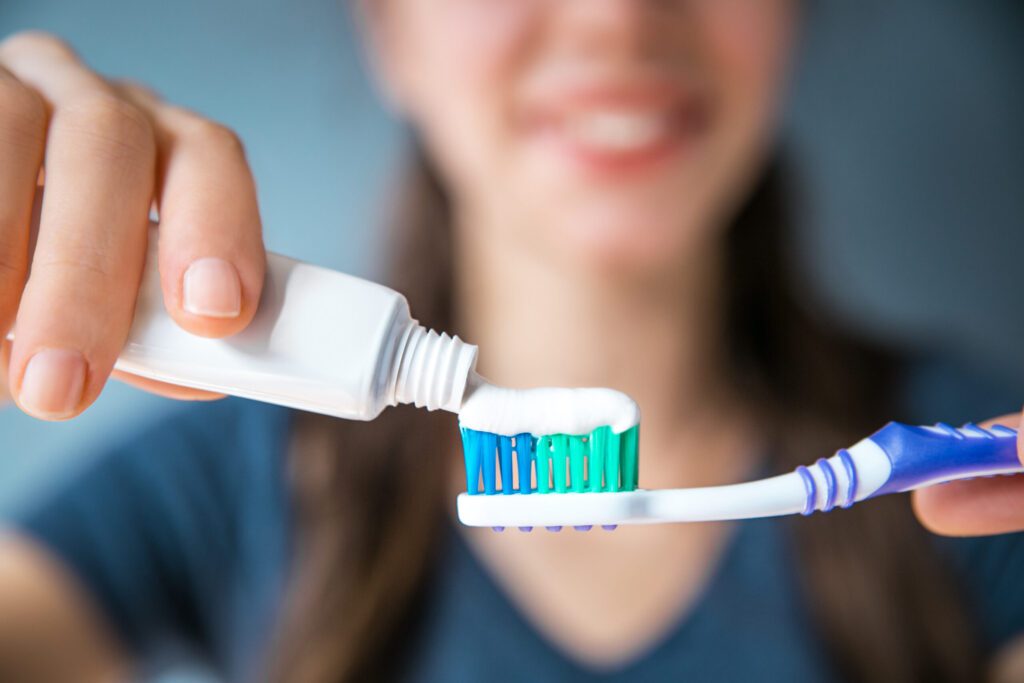Dental Care Facts to Get You Grinning
Oral health is an important part of your overall health, though many people do not take care of their teeth as well as they should. For some, the reason their oral care is not up to par is that they believe certain myths about oral health and dental care. Take our quiz on myths about oral health and get the facts for yourself!
1.) True or false? Kids don’t need to brush their baby teeth because they will eventually lose them and their adult teeth will grow in.
2.) Why is the myth that “sugar causes cavities” technically wrong?
- All foods, especially starchy foods, stick to the teeth and attract bacteria.
- Bacteria attracted to food stuck between your teeth produce an acid compound that causes tooth decay.
- Rinsing and brushing after eating any kind of food can reduce acid and plaque.
- All of the above
3.) What should you do if you have bleeding gums?
- Nothing, because bleeding gums are normal.
- Switch toothpaste brands.
- See your dentist because bleeding gums are not normal and are a sign of gingivitis, gum disease, or another problem.
- None of the above
4.) Brushing harder does not lead to cleaner teeth, but it can lead to which of the following?
- It can erode some of the enamel that protects your teeth from cavities and decay.
- It can cause your gums to recede.
- It can lead to sensitivity in your teeth.
- All of the above
5.) Which of the following is something you should do every day in addition to brushing for good oral health, even though 20 percent of Americans never do it?
- Chewing gum.
- Flossing your teeth.
- Rinsing with mouthwash.
- Using a whitening toothpaste.
6.) True or false? Chewing gum works as well as brushing for getting your teeth clean.
7.) Tooth sensitivity can be caused by which of the following?
- Loss of tooth enamel.
- Gum recession.
- Using a whitening toothpaste with hydrogen peroxide.
- All of the above
8.) Poor oral health has been linked to what other diseases or problems because the bacteria from inflamed gums and periodontal disease can enter your bloodstream?
- Cardiovascular disease
- Respiratory infections
- Diabetic complications
- Dementia and Alzheimer’s
- All of the above
9.) True or false? Charcoal toothpaste is better for your teeth.
10.) Why should you go to the dentist regularly, even if you’re not experiencing pain or discomfort?
- Regular dental cleanings keep your teeth and gums healthy and free of plaque buildup.
- Your dentist can solve small issues like cavities before they become bigger, more painful and more expensive issues, like the need for a root canal.
- Your dentist can spot problems like oral cancer that are more easily treated the sooner they are detected.
- All of the above
compiled by ERIKA ALDRICH / information provided by www.209nycdental.com/ and www.dentalhealthpartners.com
ANSWERS
- False. Kids need to take care of their baby teeth to avoid the health concerns and lifelong complications of tooth decay. They also need to create good oral hygiene habits.
- D. All of the above. All food attracts bacteria that lead to tooth decay; sugars and starches are more likely to stick to teeth.
- C. See your dentist. Bleeding gums are not normal; it’s a sign something is wrong.
- D. All of the above. Brushing too hard can erode enamel, cause gums to recede, and lead to sensitivity.
- B. Flossing your teeth. Flossing your teeth daily is the best thing you can do for your oral health behind brushing regularly.
- False. While chewing sugar-free gum can have some benefits for your oral health, it cannot replace brushing your teeth twice a day.
- D. All of the above. Tooth sensitivity can be caused by a number of issues.
- E. All of the above. Poor oral health can affect many other areas of your overall health.
- False. Charcoal toothpaste has not been proven to offer superior whitening, usually does not include fluoride, and can actually harm or stain teeth in some instances.
- D. All of the above. Seeing your dentist regularly is the best way to ensure your oral health is as good as it should be.
